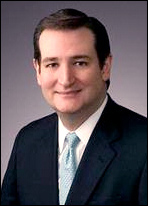Alabama voters went to the polls in the first of three elections to choose a successor to resigned Rep. Jo Bonner (R) last night, who departed the House in August to accept a position at the University of Alabama. The end result met predicted expectations, as former state Representative candidate, Democrat Burton LeFlore, easily won his low-turnout primary with 70 percent of the vote. He now awaits the winner of the Nov. 5 Republican run-off.
Of the nine GOP candidates, two will advance, former state senator and gubernatorial candidate Bradley Byrne (35 percent) and businessman and former congressional candidate Dean Young (23 percent).
The remaining seven candidates, three of whom ran significant campaigns, are eliminated from further competition. State Rep. Chad Fincher placed third with 16 percent, conservative columnist Quin Hillyer was next at 14 percent, and former Republican National Committee deputy chief of staff Webb Griffith finished fifth, garnering 11 percent. The remaining four candidates all pulled less than 400 votes.
The special election turnout rate was relatively low, but Republicans dominated among the voters who did participate. Almost 52,000 people cast ballots in the GOP election versus just 4,300 for the Democrats. The eventual Republican nominee will be a heavy favorite in the Dec. 17 special general election.
Though Byrne finished first last night, he is by no means guaranteed to win the run-off. In fact, he was in an identical position in the 2010 governor’s campaign but failed to secure the nomination in the subsequent head-to-head battle.
Three years ago, Byrne placed first in that primary, too, but fell in the run-off to Gov. Robert Bentley by a relatively stiff 56-44 percent margin. Interestingly, Bentley only secured second place by a 166-vote spread in the statewide contest. We’ll see on Nov. 5 whether the first-place qualifier breaks the majority barrier or if history will repeat itself.
West Virginia
Now that Secretary of State Natalie Tennant (D) is a formal US Senate candidate and will challenge Rep. Shelley Moore Capito (R-WV-2) for the seat being vacated by retiring Sen. Jay Rockefeller (D), Public Continue reading >

